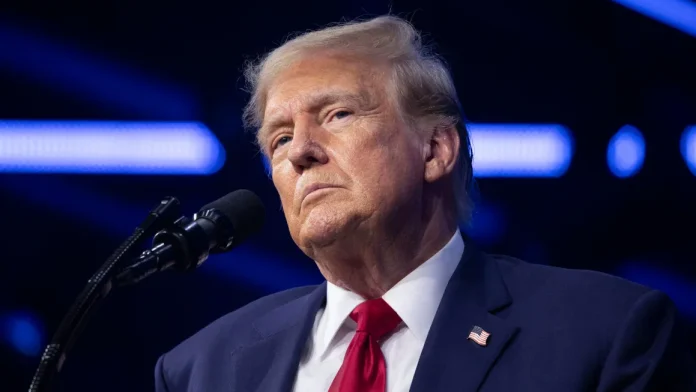The US Supreme Court has overturned a lower court ruling and ruled that Donald Trump cannot be prosecuted for any actions that fall within his constitutional authority as president, but can be prosecuted for personal actions, Reuters reports.
In a 6-3 ruling authored by Chief Justice John Roberts, the justices overturned a lower court ruling that rejected Trump’s claim of immunity from federal criminal charges related to his efforts to address his 2020 election defeat to Joe Biden. Six conservative justices were in the majority, while three liberal members of the court dissented.
Trump is the Republican nominee to challenge Biden, a Democrat, in the US election on November 5 2020 in a rematch. The Supreme Court’s slow review of the case and its decision to return key questions about the scope of Trump’s immunity to the judge for resolution make it unlikely he will be tried before the election on these charges brought by special counsel Jack Smith. Roberts wrote:
“We conclude that under our constitutional structure of separated powers, the nature of presidential power requires that a former president have some immunity from criminal prosecution for official acts during his tenure in office.”
The immunity of former presidents is “absolute” with respect to their “core constitutional powers,” Roberts wrote, and a former president has “at least presumptive immunity” for “actions within the outer perimeter of his official responsibility,” meaning prosecutors will have a high legal hurdle to overcome to overcome that presumption.
Dangerous precedent
Speaking at the White House, Biden called the decision a “dangerous precedent” because the president’s power would no longer be limited by law. Speaking hours after one of his campaign officials said the ruling makes it easier for Trump “to pursue a path to dictatorship,” Biden said:
“This nation was founded on the principle that there are no kings in America … no one is above the law, not even the president of the United States.”
The decision could derail part of the special counsel’s case as US District Judge Tanya Chutkan considers the breadth of Trump’s immunity.
In recognising Trump’s broad immunity, Roberts cited the need for the president to “fearlessly and honestly discharge the duties of his office” without threat of prosecution. Roberts also added:
“As for a president’s unofficial acts there is no immunity.”
Trump hailed the ruling in a social media post, writing:
“BIG WIN FOR OUR CONSTITUTION AND DEMOCRACY. PROUD TO BE AN AMERICAN!”
The first former president to be convicted in court
Trump, 78, is the first former US president to face criminal prosecution and the first former president to be convicted of a crime. Smith’s election subversion charges embody one of the four criminal counts Trump faced.
The court analysed four categories of conduct contained in the indictment. They include: his conversations with US Justice Department officials after the election; his alleged pressure on then-Vice President Mike Pence to block congressional certification of Biden’s victory; his alleged role in gathering fake pro-Trump electors to use in the certification process; and his conduct related to his supporters’ attack on the US Capitol on January 6 2021.
The decision gave Trump much of what he sought, but did not grant absolute immunity for all official actions, as his lawyers had advocated. Instead, the court clarified that actions within the “exclusive scope of the president’s constitutional authority” have such immunity, while actions taken outside his exclusive authority are only “presumptively” protected.
The court ruled that Trump has absolute immunity for conversations with Justice Department officials. Trump also has “presumptive immunity” for his communications with Pence, the court ruled, but remanded that and two other categories to lower courts to determine whether Trump has immunity.
US President Donald Trump holds a rally to challenge the certification of the 2020 presidential election results to the US Congress in Washington, DC
The decision was the first since the country’s founding in the 18th century, when the Supreme Court said former presidents could be immune from criminal charges in any case. The court’s conservative majority includes three justices appointed by Trump.
